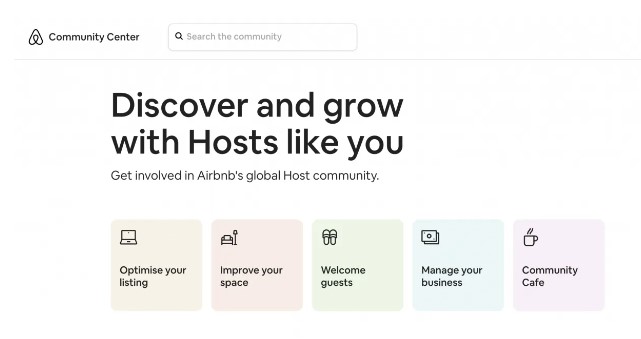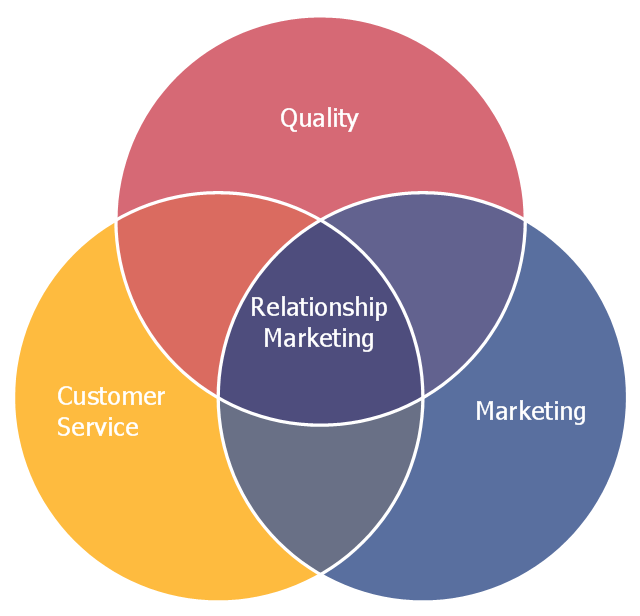5 Tips to Align Digital Marketing with Customer Service to Boost Your Business
For many business owners, the question of collaborative work between marketing and customer service teams is a burning one. And indeed, if they’re united, the chances are a company is doomed to succeed.
In this article you’ll find out why creating a knowledge base section is precious in this endeavor, how to take advantage of social media, and why marketing and customer support specialists should join forces to create evergreen content.
We will unravel five tried-and-true hacks that will help organizations build an effective synergy in these departments and develop a thriving business.

How to reach a perfect pairing between customer service and marketing
Customer service is a key player for any business. In fact, 86% of users will invest more into a product or a service if they’re treated by a support rep to the best extent.
However, a customer service department tends to operate as a standalone unit. It may be separated from designers, marketers, product managers, and other teams that can make a significant contribution to the overall customer experience.
There are brands that offer stellar customer service and say no to that separation. Their customer support teams integrate with marketing and work hand-in-hand to improve the client’s journey.
Ultimately, both customer service and marketing teams have a wealth of knowledge: the former interacts with people day by day and knows everything about clients’ needs, interests, and concerns. Yet, the latter often has worthwhile tools and fresh ideas for achieving mutual business goals.
So, if you’re aiming at an effective synergy between these vital departments in your company, learn five proven ways on how they can come to fruition together.
– 8 techniques for improving the customer experience
1. Build an active online community
A community marketing strategy will come in handy to show customers your engagement.
Provide clients with a place where they can share their knowledge and make their needs known. By creating such a community, everyone involved will notice absolute benefits. So, your brand will receive valuable feedback while customers will feel valued.
Implementing a community marketing presence may result in:
- Customer-focused product development
- Increased unity between clients, customer service, and marketing teams
- Sought-after word-of-mouth
At the end of the day, you will have an open forum packed with specific Q&A and other valuable information.
As a result, clients have a perfect chance to get to know your brand better and search for their long-awaited solutions instead of waiting for a reply in a live chat, a phone call, or an email.
For instance, Airbnb, a community-driven rental service, gives its like-minded clients a sterling opportunity to discuss everything that’s connected to their places of living.
They can tell each other what makes their homes so special, talk about local sights, or just be grateful for hospitality. This way, Airbnb hits the mark, which positively impacts its brand loyalty.

2. Incorporate a social media approach
A productive online presence is what any business strives for 95% of users follow a brand on different social media networks, which displays its reach.
Today you can integrate your product or service with any communication channel, like Instagram, Twitter, Facebook, or LinkedIn.
Alternatively, you can also incorporate all your social media handles into your virtual business card to keep the engagement tracking process handy. This ensures a seamless connection between your various channels and provides a convenient way for potential clients to stay engaged with your brand.
By doing that, you show that your team is not only ready to lend a helping hand at any time but also demonstrates your engagement with customers.
As a rule, SMM is in charge of a company’s social media account. It’s marketing experts who develop a profile by posting newsworthy content: videos, images, and polls. But customers can also come to your account in order to get their problems solved. And customer support reps are the best to cope with this task.
With dozens of social media accounts run by marketing departments, support reps often have no clue what’s happening on clients’ most popular networks. And marketers sometimes lack the knowledge of how to sort things out when customers address them with complaints.
For instance, a marketing specialist can respond in several ways:
- Non-intervention: Marketing tags a support team and lets them handle all the stuff;
- The cautious approach: Marketing takes a crack at solving an issue themselves, even though they don’t know the solution for sure;
- The team player strategy: Marketing discusses a problem with a customer support department and answers a client with its instructions in mind;
- The fence-sitting approach: Marketing notices a customer’s message but ignores it and doesn’t inform a support team.
Providing omnichannel customer support is a must today and social media is one of the crucial channels along with traditional chat and email solutions.
Even if your marketing managers are in charge of social media accounts, arrange fruitful cooperation between them and support reps. For that, you can install any team communication tool to discuss social media cases.
Plus, consider fine-tuning social media routing in your customer support tool so that service agents fix clients’ issues right from their dashboard.
A marketing team should stay in the know of what your company’s going through. For instance, if there’s an emergency (your service isn’t working, delivery issues appear, or a site is down), marketing experts should monitor it and address complaints on social media before it’s too late.
As a workaround, you can also pin a dedicated QR Code on your Facebook, Twitter, or Instagram account so that users scan it and be able to contact the team before a situation heats up.
– How to create social media content with high engagement power
3. Focus on customer service in your relationship marketing strategy

As the name implies, relationship marketing is all about creating strong customer connections to a brand and promoting word of mouth.
This is when support reps can join the game. If clients are satisfied with the help you provide, they’re likely to remain loyal.
Moreover, customer service agents understand how clients use your products and what challenges they face better than anyone else. So, they can pass this valuable information on to the marketing team.
Every great strategy starts with a team that loves what it deals with. And building a great squad should be the core of your relationship marketing strategy. That’s why if your customer support department has a positive attitude, and knows what they’re talking about, your clients will understand the value of your services better.
But hey, who said it should be JUST the agent’s prerogative? The modern audience is no stranger to digging up info on their own (and is good at that!).
Our point is that customer self-service has already gained momentum. So creating a knowledge base should be at the top of your to-do list when going for this adventure.
You’d better jump on the hype train and deploy a well-oiled resource hub where all your user guides, tutorials, troubleshooting materials, and product features will be kept and stored smartly.
Users will thank you for organizing a powerful pool of data that is always at their fingertips!
4. Create a well-thought-out buyer persona
A buyer persona is a reflection of your target customer. This image helps understand your audience better and makes shaping content, developing a product, and achieving business goals a snap.
In order to get a full understanding of what makes your customers act, it’s of paramount importance to develop a detailed buyer persona.
However, in their pursuit to define such personas, many organizations rely only on Google Analytics and some market research data.
The thing is that they don’t take the human element into account. This is when a customer support team may come into play.
Support reps understand all the intricacies of a customer’s buying process. They can help your marketing department take advantage of real-life situations that actually lead to a sale.
– How to Create a Customer Journey Map
To build bridges between marketing and customer service to reach better-quality leads, arrange meetings where you can discuss the following details:
- Who your existing client is: When you’re in the middle of shaping your buyer persona, focus on such key information as age, gender, and business profile. A customer support team knows it for sure as they interact with real people. Having this data from customer support in their arsenal, marketing experts can deal with different clients.
- What questions customer support usually hears from prospects: It may not seem crucial for support agents, but it’s a goldmine for marketers. Questions almost always lead to decisions, especially buying ones.
- What helps get the job done: Does your team take on manual tasks to simplify the customer’s journey? An internal how-to document won’t go amiss and will reveal a lot about client values and demands.
- What customers think about your product: When people complain about things that don’t work, it isn’t always bad. Learn from past mistakes and share knowledge with your colleagues. Besides, consider using both positive and negative feedback and let your marketing team process your product or service strengths and prospects’ weak spots.
By using live chat software and interacting with clients in real time, it’ll be a snap for support reps to gather various opinions, reviews, and shape a detailed buyer persona.
– How to create buyer personas for your business
5. Produce trustworthy content together
Successful marketers realize the importance of relevant content. But they also understand the need to have a steady flow of ideas for that.
Even seasoned wordsmiths sometimes struggle to come up with the right and valuable concepts for their audience. This is where your marketing team can save the day.
As people who are constantly interacting with customers and fixing their problems, a customer support department can be the source of viable content ideas.
To put it in other words, if your service reps provide some authentic examples based on their daily routine, marketing managers can use them as an added bonus. After all, marketers always hold out for creating content that could solve the audience’s issues.
Initiate talks between customer service and marketing teams. Organize regular meet-ups to brainstorm the types of content you can craft together and what it’ll take to address your clients’ concerns.
In addition, encourage your employees to bounce around ideas about how-tos, guides, and everything that can be especially helpful for prospects and loyal customers.
Boost your business with a great customer service

Marketing and customer service teams have so many similarities that you probably haven’t noticed yet. A close touch between these two departments can do wonders for your business.
That is, you can strike a positive customer experience, boost your brand awareness, and reduce clients’ problem areas. Aligned employees will think fresh ways out to show your company to the best advantage.
Making use of support’s customer focus to generate offbeat content, getting the most out of social media, and studying the user base will bring about increased revenue in the long run.
If you are creating and selling online courses, Coursify.me is the best platform to host your courses and advertise your courses.
By hosting an online course on Coursify.me you personalize the course page with your identity and create links to your social networks, facilitating its dissemination and communication with your students.
Serving businesses and professionals in more than 60 countries, Coursify.me is a dynamic and customizable Learning Management System (LMS).
– Learning Management System: What is it?
Visit our website, test the platform and find out why we are the best option for you and your customers.

